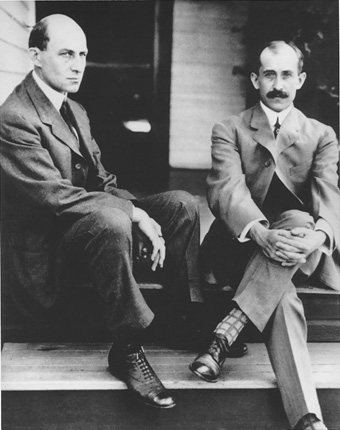Looks like angry doc is not the only one to look at the issue of euthanasia from an 'economic' point-of-view...
The case for euthanasia
When thinking about our 'rights' to death, are there double standards?
CHARLES TAN
DEATH is perhaps the only truly universal trait that we all share and thus, identify with — regardless of culture, status, or faith — and yet it is still taboo (if not impolite) to talk about it, much less debate it, in modern society.
If you've ever watched the Animal Planet channel, you've probably gawked in disbelief at how fortunate some pets are. Paris Hilton's pooch chows down on foie gras, while 3 billion people (that's half the world) live on less than $3 a day.
But if life is good for these pets, death might be even better — for when perceived to be in agony, at least they are put out of their misery.
Humans on the other hand, have no such option.
So, what is an aspiring economist doing questioning the legality of euthanasia? Aren't such matters best left in the hands of ethical philosophers and moral legislators?
The way I see it, the criminalisation of euthanasia is tantamount to a violation of the free market and individual property rights, and thus warrants a rational (read: economic) review.
The most common justification for the flagrant infringement of a basic human right — the freedom of choice — is that the average person often makes "bad" decisions, thus the need to relieve him of certain options.
However, if a decision bears little to no adverse effects on anyone but oneself, why should the government intervene?
To be sure, I believe most would find the mohawk a "bad" haircut; but the hair on someone's head is his, not mine, and his garish haircut doesn't waft into my eyes like second-hand smoke does. How he decides to treat his hair should be no business of ours.
By the same token, what a man chooses to do with his life should be treated with equal respect, for it is the individual's prerogative, and not the communal right, to decide.
Choice presupposes ownership. Therefore, central to the euthanasia debate is religion, for your belief in the nature of cosmic truth will ultimately determine who owns, and therefore controls, your life.
Euthanasia finds its strongest opposition in the annals of religion — and this is perhaps the reason why supposedly secular legislation is skewed so — because modern law remains primarily based upon Biblical canon.
To deny one the right of choice over his own life, is to presume that he had no ownership over it to begin with.
Followers of monotheistic faiths believe that life was bestowed by some supreme Creator, and thus, can only be rightfully taken away by Him.
Some might argue that our emasculation with regard to birth should follow into death, but such a fatalistic view is about as bright as saying that those born into poverty should not endeavour to enrich themselves.
Instead, Life, like an inheritance, is but an endowment, and has no bearing over what you may decide to do with it.
Let me concede that we have no say in our creation — our parents did.
Life is as much a given as Death is; but while (or perhaps, because) we have no control over the former, we strive to control the latter like we attempt of everything else around us.
Everything modern medicine has achieved might seem to be in contravention of a divine order.
Consider how — and this can be empirically proven — two identical people, with identical illnesses can experience vastly different life expectancies, when given, or deprived of, access to medical amenities.
To me, this is positive proof that we are either defying some heavenly instruction by our prolonged existence, or that perhaps such an order never existed to begin with.
If we assume, for the sake of argument, that such an order exists, it must then logically follow that if He does not find the extension of our mortal existence offensive, then why should the converse be so controversial?
If we try reasoning along an atheistic slant, then the argument becomes even more potent.
Many biologists argue that what differentiates humans from the rest of the animal kingdom is the capacity for emotion; and perhaps, what unites us, is the sensation of pain.
If pain truly is universal, then our double standard between animals and humans in this regard is not only hypocritical — it is downright perverse.
Consider this: An animal, with no means of communicating its true intent in a language intelligible by humans, except its display of perceived agony, is by default, put down if thought to be suffering; while a human, perfectly capable of communicating intent and/or visibly in pain, is by default refused any assistance for voluntary euthanasia.
Lastly, a country that has the death penalty has no right opposing euthanasia, for one of the most popular arguments against euthanasia is that its legalisation constitutes a government sanction for suicide and therefore cheapens the inherent worth of human life.
To digress a bit, there are other parallels to be drawn.
Some argue that the death penalty is justified in that it has a deterrent effect and that imprisoning a felon for "25 to life" is ridiculously expensive for the taxpayer to upkeep so heinous a criminal.
It should be obvious that the criminalisation of euthanasia has no deterrent effect on any individual, simply because it is not an act of frivolity, but one of desperation.
The able will still resort to messy alternatives or seek assistance in Holland, where euthanasia is legal. The unable must continue wallowing in pain. Even if the ban does preserve life, it most certainly robs it of dignity.
Also, keeping an unwilling patient on life support ties up precious medical resources and attention, which could otherwise be used to save patients with a will to live. An outright ban is not only just cruel, it also runs in direct contradiction to the logic behind many of our existing laws and beliefs.
The inconsistencies in our justification should compel us to question if our reasoning in support of the ban is valid, or if they are predicated upon traditional dogmas which are in serious need of intellectual review.
As an atheist, I find that the absence of an afterlife in my ideology reinforces my love for life.
For only when we concede just how short life really is, do we begin to cherish what little time we have left.
Depriving us of our right to death does nothing to that effect.
(The writer is currently studying for his MSc in Finance and Economics at the London School of Economics.)
Mr Tan's line of argument goes all over the place, but it is nevertheless a fun letter to read.
angry doc believes Mr Tan argument is basically this: people have the right to end their own lives.
To angry doc that is a non-statement - everybody dies, and there is very little anyone can do to stop someone who is truly determined to die from killing himself or herself. 'Right' is a social construct, and in the face of the bare realities of existence 'right' does not even enter into the equation.
We have no more the right to die as we have the right to live.
That aside, angry doc thinks that Mr Tan could have defined his terms-of-reference a little better.
An 'unwilling patient on life support' does not have to receive that life-support if he or she does not want to and can communicate that intention, and taking him or her off life-support then does not constitute euthanasia, or at any rate amounts only to 'passive euthanasia', which is not currently illegal.
(At least angry doc hopes it isn't, or he is in big trouble...)
The issue at hand is actually 'active euthanasia', and specifically 'voluntary active euthanasia'.
The debate about euthanasia isn't really about the right to end one's own life - if it was one could simply jump off a tall building or a pier, or step in front of a speeding train. Euthanasia is about wanting to end one's life with minimal discomfort, maximal certainty, and getting someone else to do the job of killing for you.
In other words, euthanasia is not about giving someone the right to end one's own life, but giving a class of people the right to end another person's life with his or her consent (or the consent of his or her guardian, depending on the specific legislation).
In most settings, this translates to physician-assisted suicide.
And that's what pisses angry doc off about the euthanasia debate.
Why do discussions of euthanasia always have to involve the medical profession? It doens' take five years in a medical school to learn how to kill someone effectively, I assure you.
We don't mind keeping people alive if that's what they want, but I certainly don't see why 'murder' has to be added to our job description.
But if you want a doctor's opinion, here's what angry doc's experience has taught him: nobody actually wants to die.
The man who is in debt does not want to commit suicide, he just wanted to be freed from his debts.
The woman with terminal cancer does not want to undergo euthanasia, she just wants to be freed from her pain and suffering.
Give either person what he or she lacks or wants, and death is no longer an attractive option.
Labels: letters














